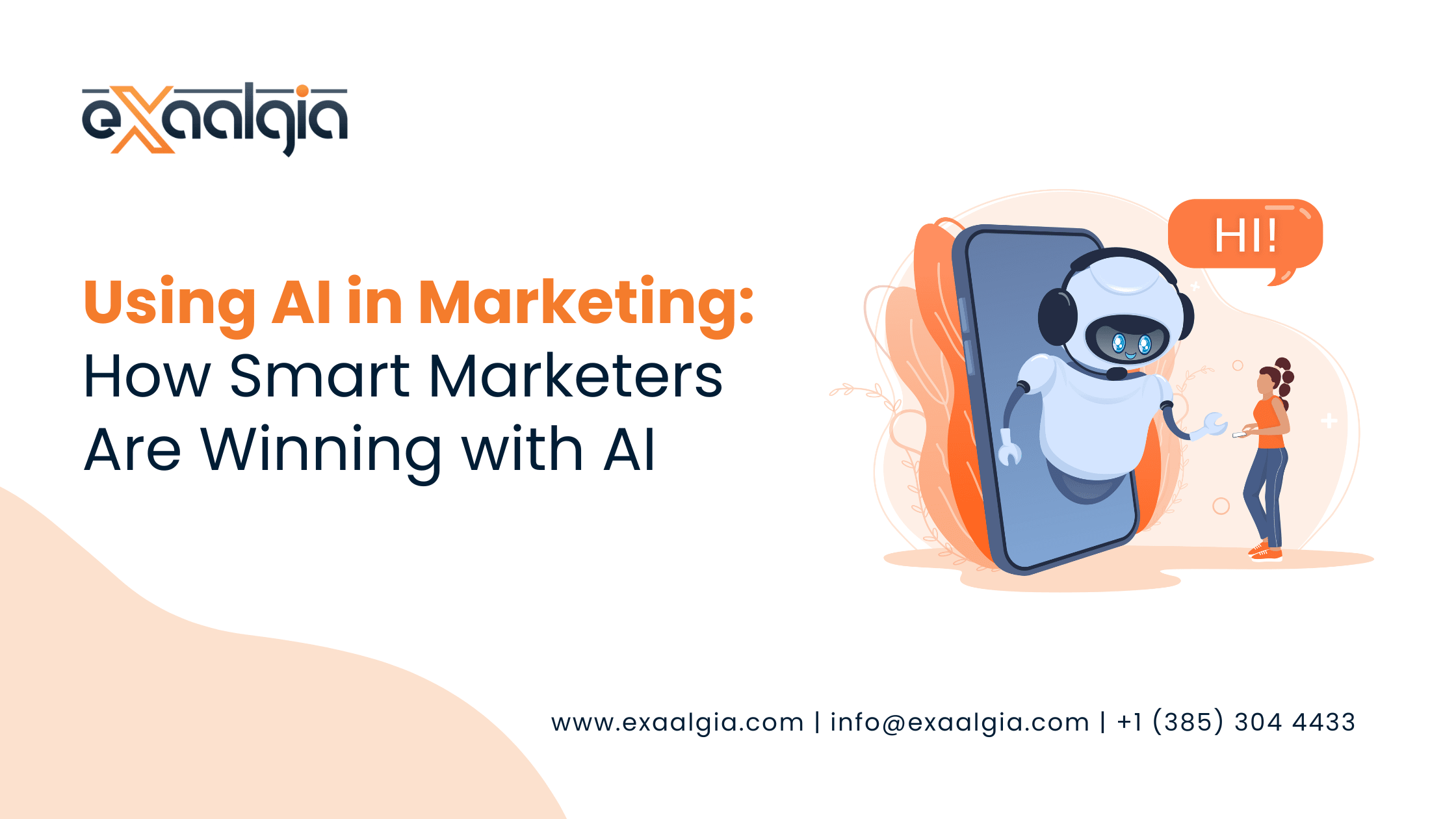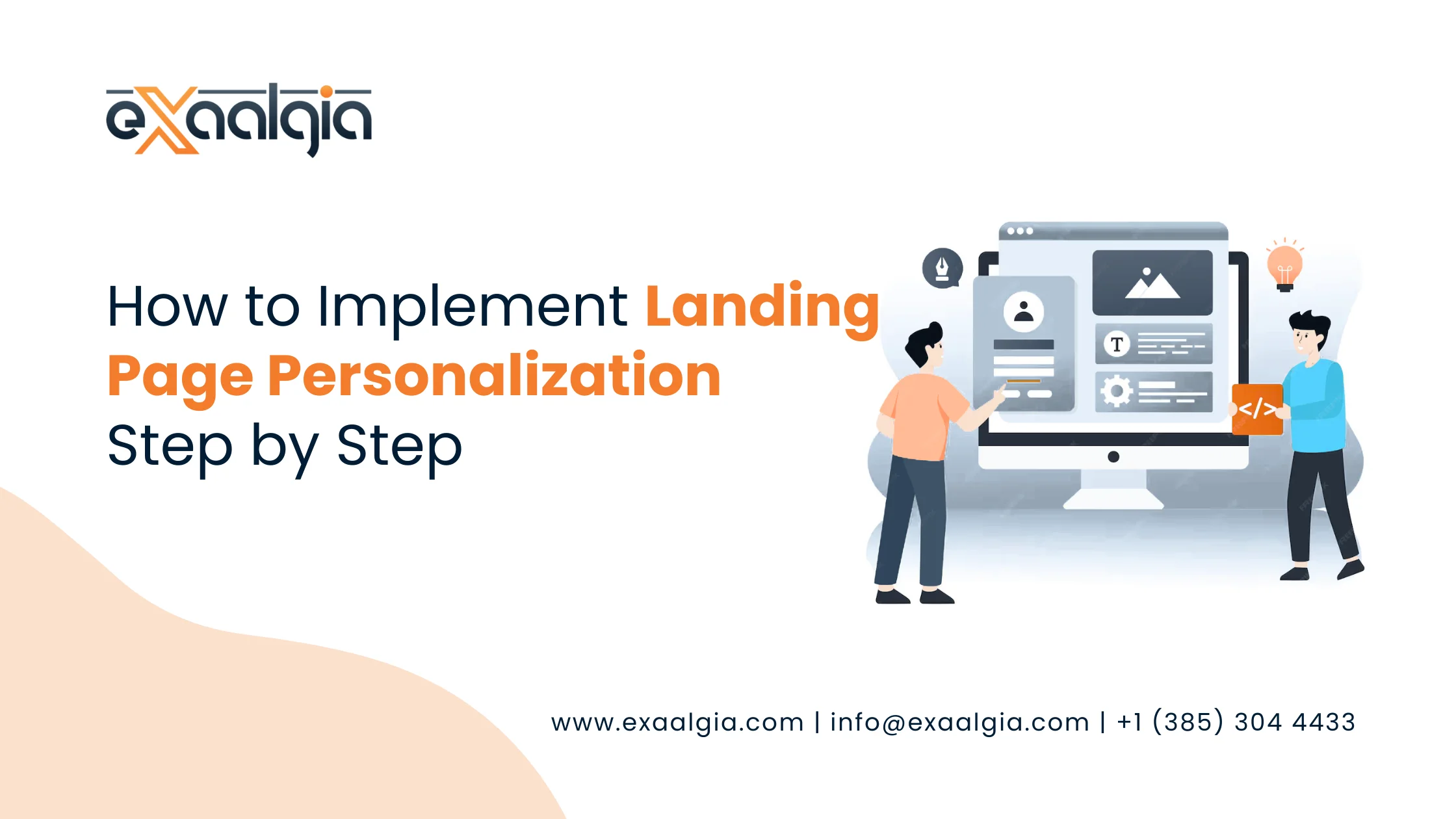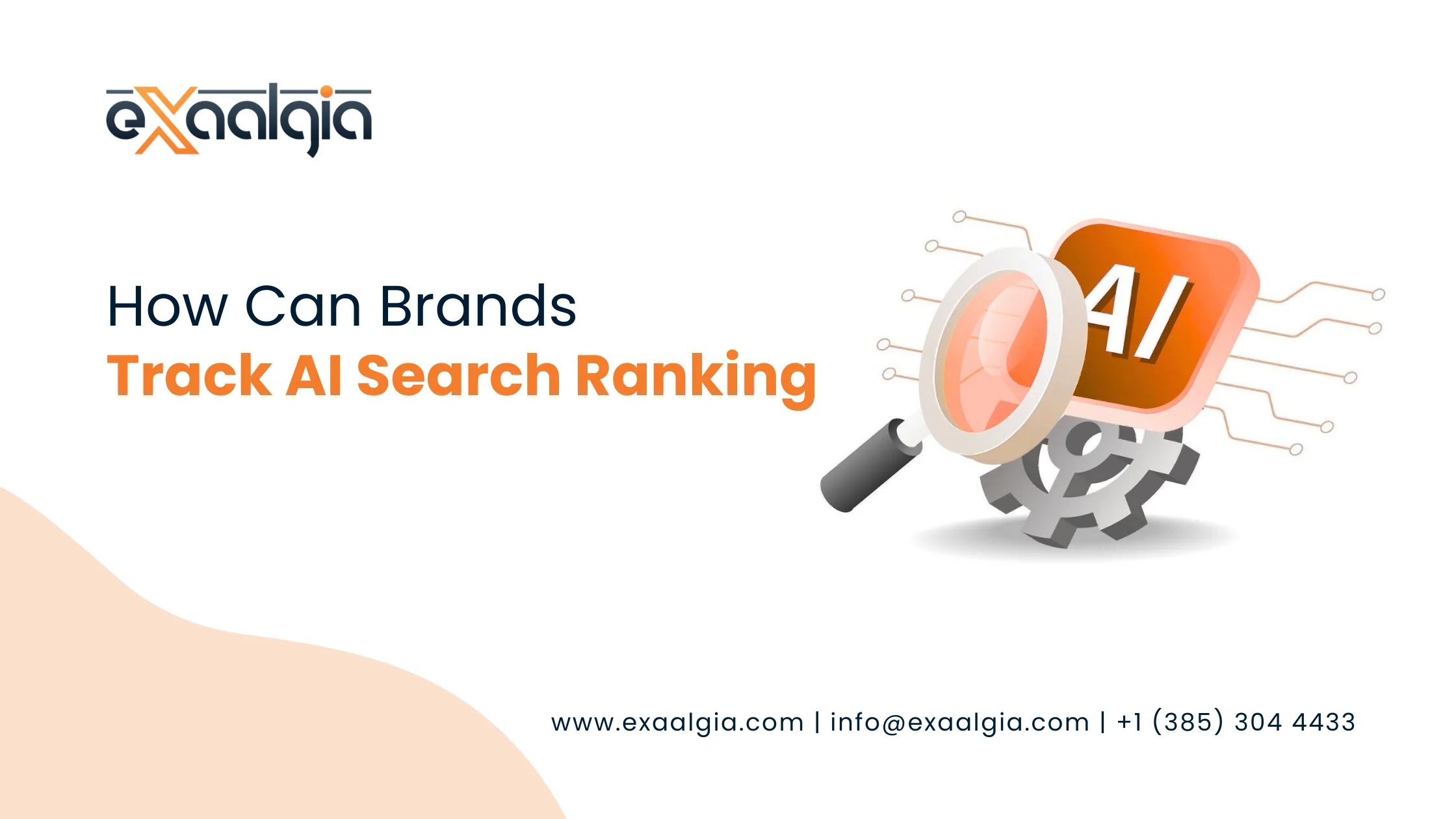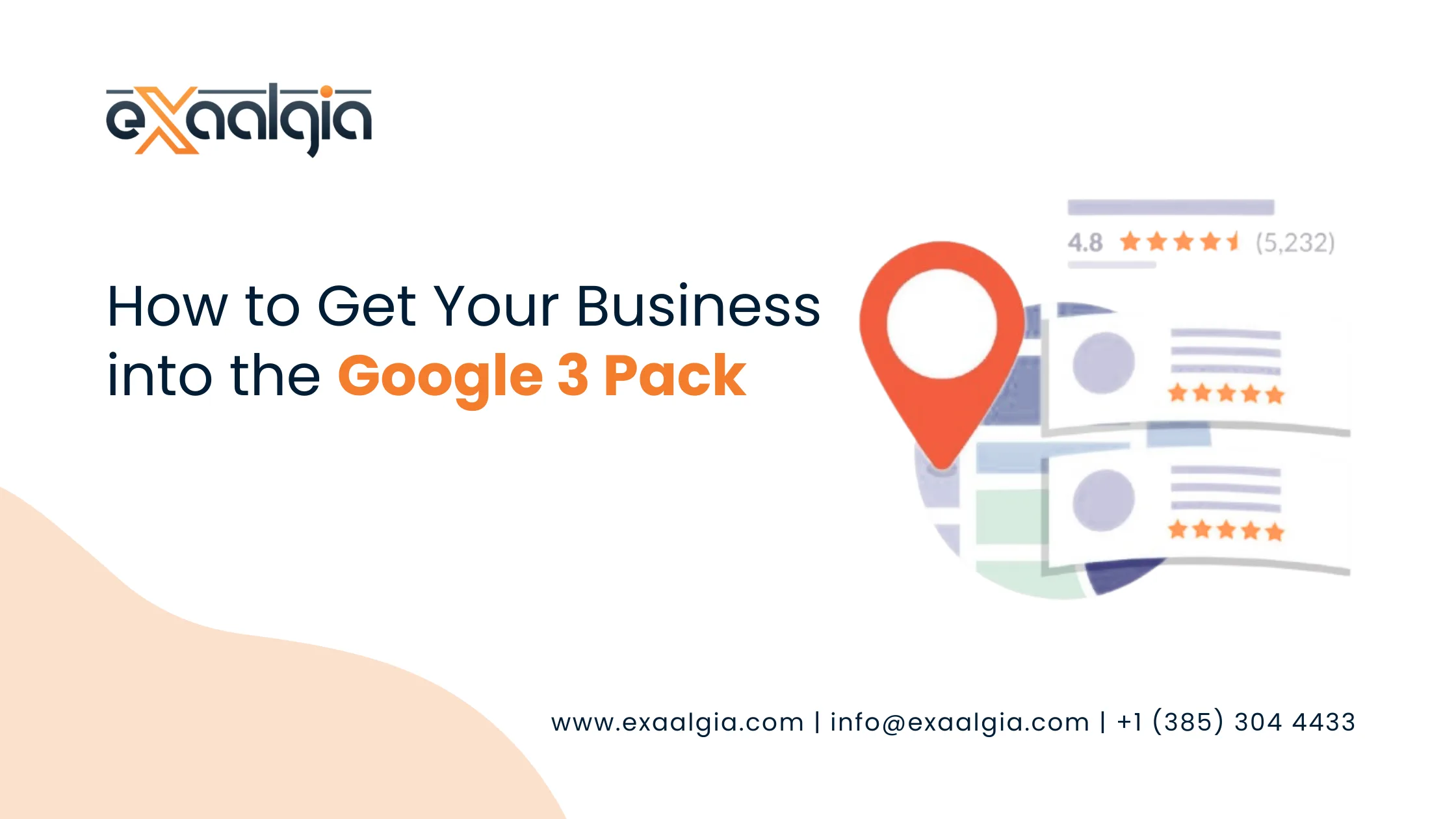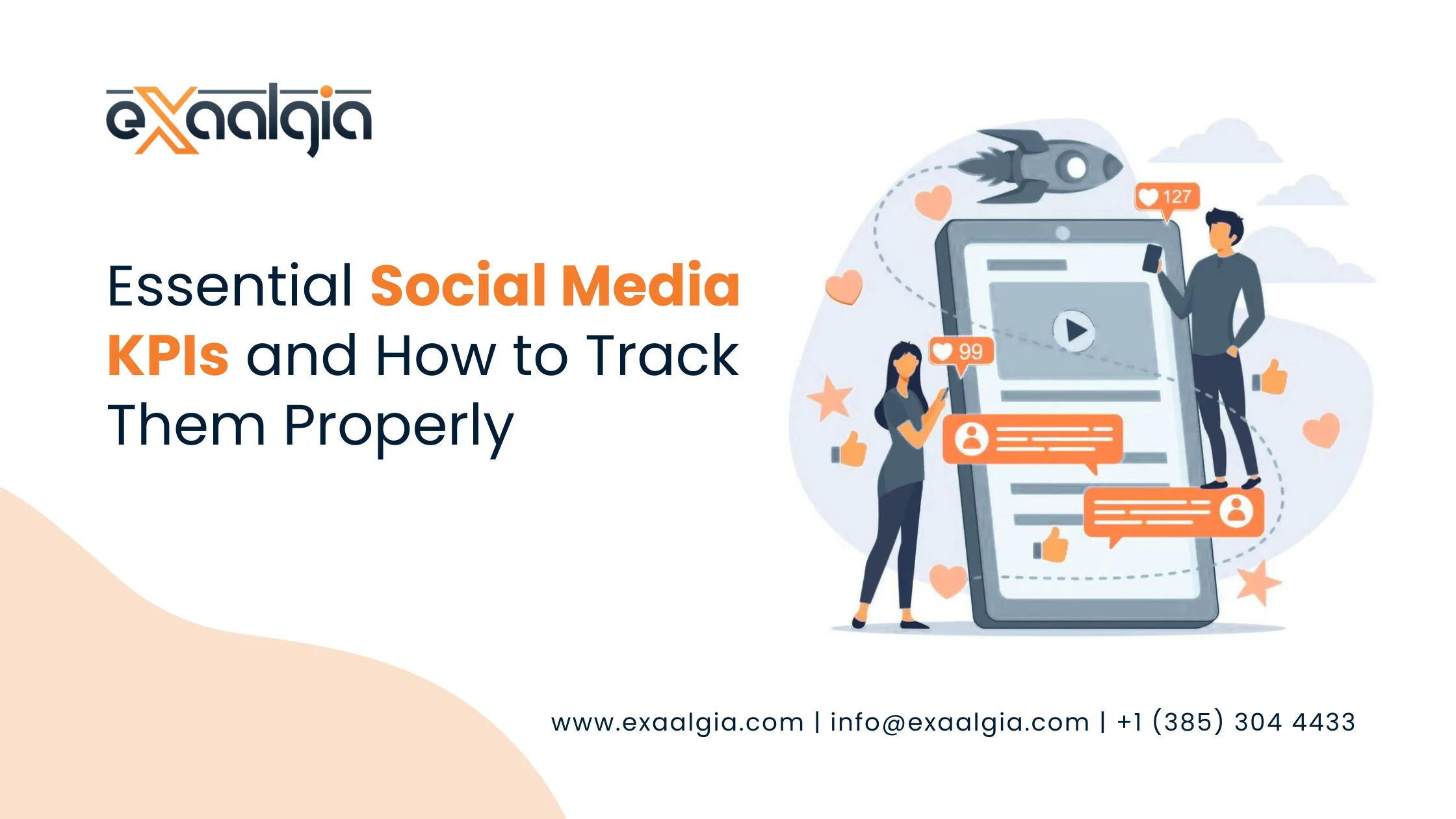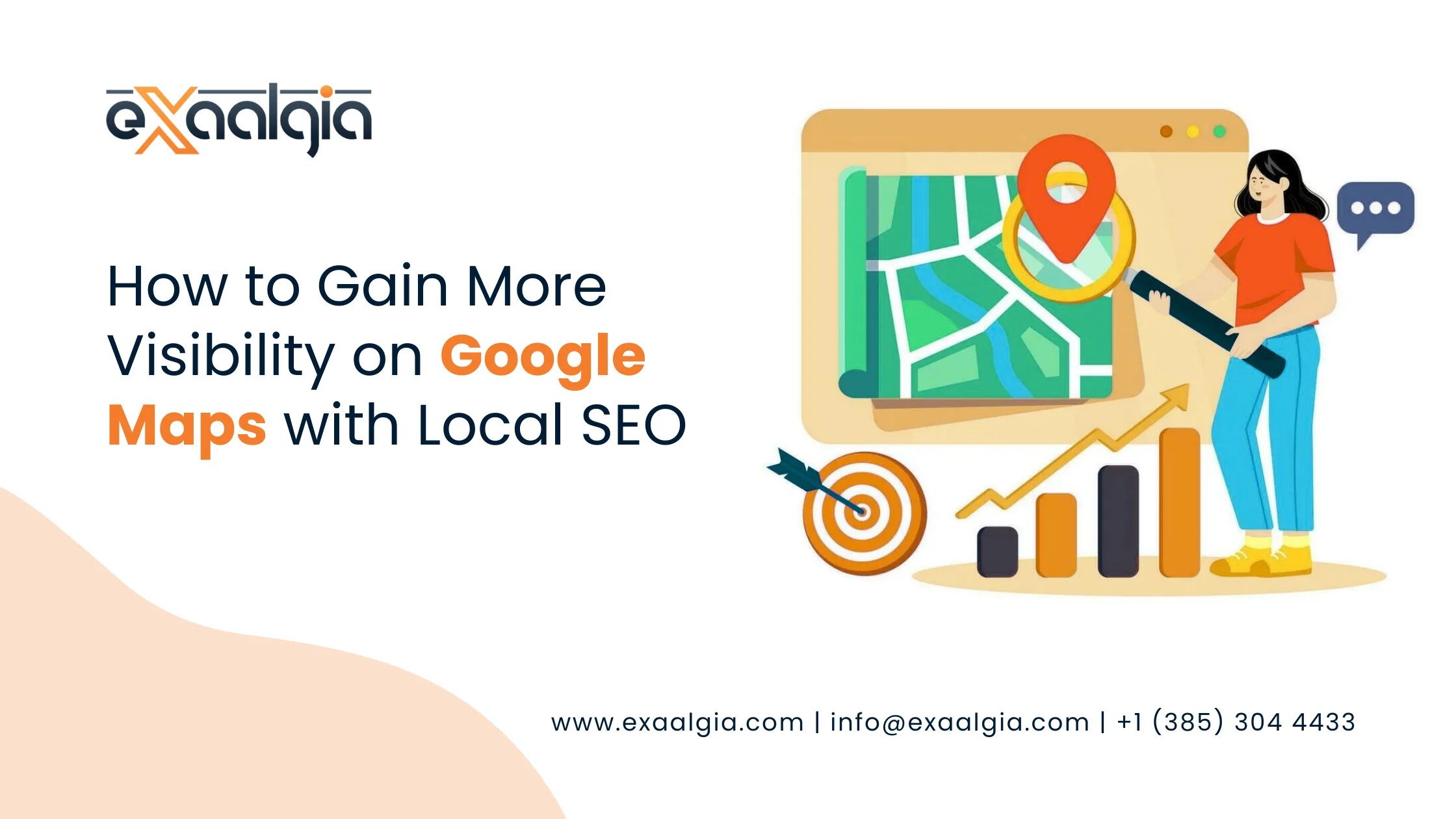The future of marketing is artificial intelligence, and it is present. Whether it’s the emails you check or the advertisements you look at on Instagram, AI is working behind the scenes, assisting the brands to know what you want even before you know it yourself. To businesses, using AI in marketing means smarter marketing campaigns, smarter personal experiences, and smarter outcomes without having to burn out teams.
This is massive to marketers and those who create content. AI is transforming the way we research, plan, write, design, and even engage with customers. And the best part? You do not need to be a data scientist in order to use it.
Today, what AI means to marketers, how it is already altering the game, and how you can leverage it to work smarter, not harder.
Why Using AI in Marketing Is Becoming Every Marketer’s Best Friend
Think of AI as your marketing assistant that is always there. It doesn’t complain, it doesn’t get tired, and it has the ability to analyze more data in one second than we could in an entire week.
Here is why AI is so important in marketing right now:
1. Save Time on Repetitive Work
If you’ve ever spent hours drafting social posts or writing product descriptions, AI can cut that time in half. Many marketers say AI tools help them save 10+ hours a week, that’s more time for strategy and creativity.
2. Personalization at Scale
Today’s consumers expect brands to “get them.” Using AI in marketing makes this possible, by looking at buying habits, browsing history, and behavior to craft hyper-personalized messages. You’ve probably seen AI personalization for yourself, whether it’s Netflix suggesting what to watch next, or Amazon suggesting products based on history.
3. Better Decision Making
You don’t have to guess what will work, AI can tell you. Whether it’s projecting sales or pinpointing which ad will outperform others, you gain data-backed insights to help in crafting campaigns.
4. Increase ROI with Automation
AI tools automate lead nurturing, customer segmentation, and ad targeting. This leads to more efficient campaigns, and usually better results with less wasted budget.
Real Ways Marketers Are Using AI Today
So how does AI actually fit into a marketer’s daily workflow? Here are some of the most popular (and practical) uses:
1. Content Ideas and Research
Finding new blog or social ideas can be exhausting. AI can help you generate ideas, research trends, and even help with keywords your target audience is searching for.
2. Writing and Editing
AI won’t replace your unique brand storytelling, but it can help provide a first draft or outline to work with. Think of it as your co-writer, moving the first stages of writing along faster so you can focus on the edits.
3. Marketing Automation
AI brings an improved intelligence to automation – meaning everything from scheduling an email to segmenting a list. Tools can tell automatically when is the best time to send an email or even personalize the subject line for each person.
4. Customer Support
Chatbots powered by AI are now handling FAQs, booking requests, and simple issues, 24/7. This frees up human support teams to focus on more complex customer needs.
5. Audience Segmentation
Instead of manually grouping customers into buckets, AI can spot hidden patterns and segment users more precisely. This means better targeting and more relevant campaigns.
6. Predicting Customer Behavior
Want to know which leads are most likely to convert? AI can analyze past actions to predict future ones, making your sales and marketing much more efficient.
7. Creating Visuals and Videos
AI tools like DALL·E, Midjourney, and Synthesia can generate images or even create short video content in minutes, something that used to take hours or expensive resources.
8. Smarter Ads
AI can automatically generate ad copy, select images, and test variations, finding the winning combination faster than humans ever could.
The Real Impact: Success Stories & Stats
- Big brands are all in. At Cannes Lions 2025, CMOs from brands like Mercedes-Benz and e.l.f. Cosmetics said AI is helping them scale personalization and boost creativity.
- Small businesses are thriving too. A survey found that 77% of small business owners believe AI gives them an edge, saving both time and money.
- New challenges are emerging. With AI search engines on the rise, marketers now need to optimize content not just for Google, but for AI platforms. This new field, Generative Engine Optimization (GEO), is something to watch closely.
But It’s Not All Sunshine: The Challenges of AI
Like any powerful tool, AI comes with its own set of risks:
1. Bias and Fairness
If AI is trained on biased data, the output will also be biased. This can create unfair or inaccurate marketing messages. Marketers need to review AI content carefully.
2. Authenticity Concerns
Consumers can spot fake content. Relying too heavily on AI risks losing your brand’s authentic human touch. Think of AI as an assistant, not a replacement.
3. ROI Reality Check
A lot of companies are experimenting with AI but not all are seeing results. Why? Because AI works best when integrated into workflows, not as a shiny add-on.
The Role of the Modern Content Writer in the AI Era
If you’re a content writer or marketer, don’t worry, AI isn’t here to take your job. It’s here to make you better at your job. Here’s how:
- Be the strategist. Let AI handle repetitive drafts, while you focus on storytelling and brand tone.
- Stay ethical. Ensure AI-generated content is accurate, fair, and free of bias.
- Experiment constantly. Test new tools, measure performance, and adapt quickly.
- Focus on human connection. AI can write words, but only you can make content resonate emotionally.
What’s Next for AI in Marketing?
Here are some big trends to look out for moving forward:
- Generative AI for Strategy – AI won’t only create content; it will help create top-level marketing strategy.
- Chief AI Officers (CAIOs) – Companies are now hiring executive roles to manage AI in the company or marketing organization.
- Hyper-Personalization Everywhere – Websites, email, ads; AI-driven personalization will become ‘table stakes.’
Concluding remarks: Human + AI = Marketing Superpower
Today, the most clever marketers are not posing this question: Will AI replace us? They are instead asking, What can we do with AI in order to do our best work?
The answer lies in balance. AI can save time, analyze data, and personalize on scale. However, allow your imagination, sympathy and narration to be the soul of your campaigns.
And because AI may have ideas about what your audience will desire, it is up to you, the human marketer, to know why it matters, not just AI.
Takeaway: Start small. Select one AI tool in content, advertisements, or customer support and try it. Measure results, improve your process and scale up.
FAQs About Marketing with AI
1. What does marketing with AI mean?
Marketing with AI is when you apply artificial intelligence to engage with customers using marketing automation tools, analyze customer profiling and campaigns, optimize ROI and improve promotional ROI by working smarter rather than simply enhancing our human creative output.
2. How can small businesses use AI in marketing?
Small businesses can use AI to reduce time and spend in ways such as automating social media scheduling, email marketing, and customer segmentation. So many AI tools are available that are also extremely affordable, making it accessible to everyone in the marketplace and leveling the playing field.
3. Is AI going to replace marketers?
No, AI can provide data and automation that can enhance creative output but, human marketers are still very much needed for creativity, empathy and strategy. The best return on investment is going to come from marketing’s greatest assets human creativity working in tandem with valuable AI data.
4. What are the risks of using AI in marketing?
The risks include biased outputs, over automation (ie losing authenticity), and poor ROI is not using AI in workflow effectively (ie losing time and money). This is why human input is key.
5. What is the future for AI in marketing?
We will see more personalization, AI driven strategy, and even roles such as Chief AI Officer (if there is such a title). Marketers that start to focus on using AI sooner rather than later will be ahead of the pack, whereas those who ignore the markets shift to AI driven campaigns will quickly fall behind.

